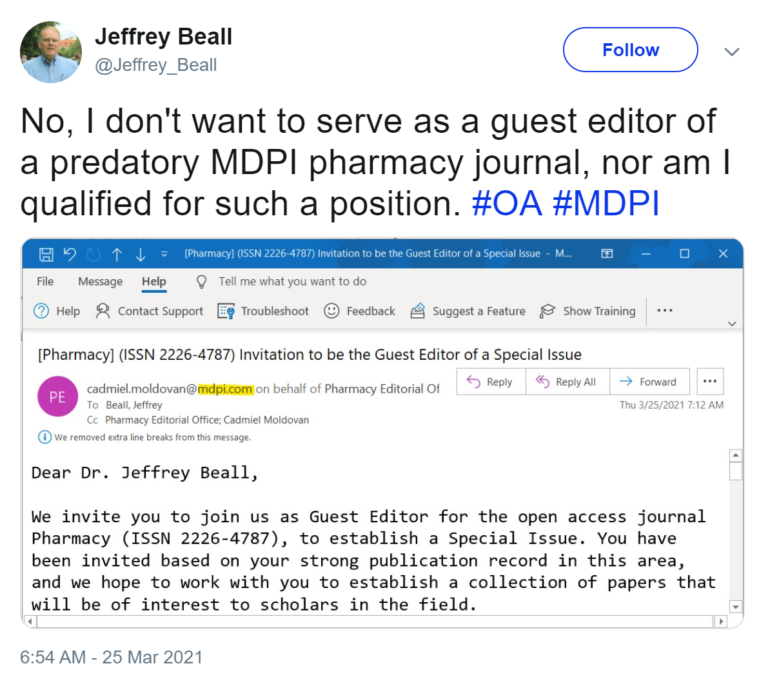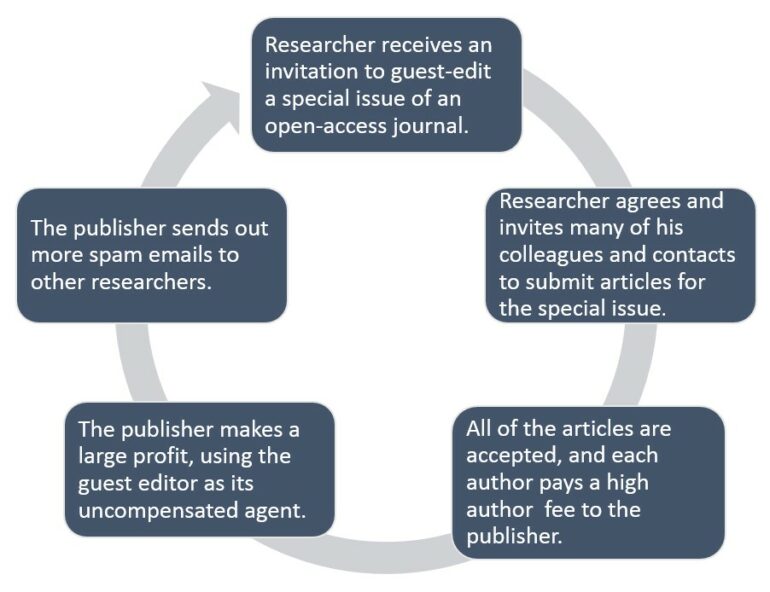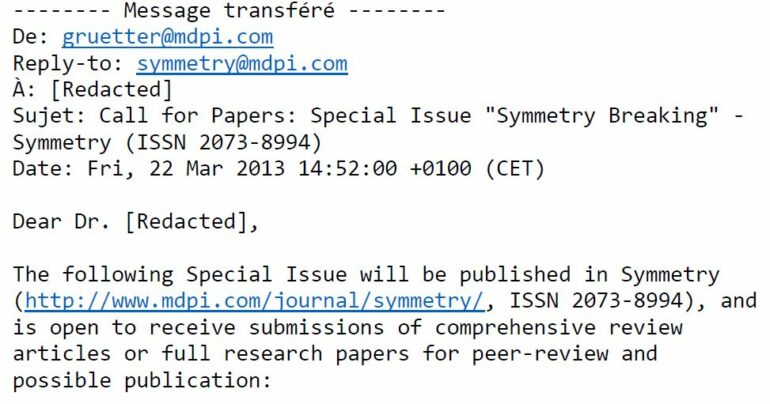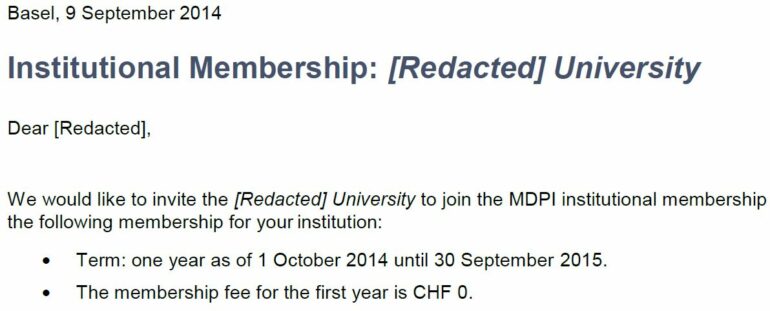Background
MDPI has been listed as a predatory publisher and is especially popular with conspiracy theorists. As of January 26, 2022, we count 16 MDPI special issues edited by conspiracy theorists.
Besides promoting chronic Lyme conspiracy theories, MDPI has published an unethical Scientology study and papers by anti-vaxxers Stephanie Seneff, Paul Thomas, James Lyons-Weiler, and Harald Walach.
In 2017, Jeffrey Beall described how publishers like MDPI would try to be removed from his list of predatory publishers:
Some tried annoying university officials with numerous emails and letters, often sent as PDF attachments, with fancy letterhead, informing the university how I was hurting its reputation. They kept sending the emails to the university chancellor and others, hoping to implement the heckler’s veto. They tried to be as annoying as possible to the university so that the officials would get so tired of the emails that they would silence me just to make them stop. The publisher MDPI used this strategy.
In 2021, MDPI even tried spamming Beall himself, inviting him to create a special issue in Pharmacy, an area that he has no expertise in:

Editors guilty of scientific misconduct
ILADS leader Leona Gilbert & business partner Kunal Garg were found guilty of research misconduct over a conspiracy theorist Nature Scientific Reports paper. Nevertheless, MDPI allowed Gilbert and Garg to publish a paper citing the discredited Scientific Reports paper. Garg and Gilbert’s MDPI paper was in a special issue edited by ILADS speaker and conspiracy theorist Natasha Rudenko.
Incredibly, after she was found guilty of research misconduct, Leona Gilbert was announced as an editor of an MDPI special issue, along with other conspiracy theorists, including longtime “Lyme literate” charlatan Kenneth Liegner. (Twitter thread)
MDPI also allowed former ILADS president Raphael Stricker to edit three(!) special issues that have been used to publish a number of garbage papers. Stricker was found guilty of scientific misconduct by the NIH and UCSF, and ultimately fired by UCSF.
Raphael Stricker has a long history of making bizarre claims, including falsely claiming AIDS was caused by contaminated polio vaccines. Stricker is also notorious for promoting chronic Lyme and Morgellons, both conditions unrecognized by mainstream medical experts.
Below is a copy of a 2015 article from Jeffrey Beall and his now-defunct site Scholarly Open Access.
LymeScience republishes:
So-Called “Special” Issues of Journals: Big Money for Gold OA Publishers
By Jeffrey Beall, February 24th, 2015

Special issues of journals mean big money for gold (author-pays) OA publishers. It’s a type of affinity marketing. The special issue guest editor typically invites his contacts and colleagues to contribute papers for a special issue on a topic, and they all have to pay author fees to the publisher.
In this way, the guest editor acts as an uncompensated agent for the publisher, and the publisher benefits financially from the guest editor’s professional and personal relationships.
Recently, many people have been forwarding me spam invitations they have received from publishers inviting them to serve as guest editors. Some graduate students have received these invitations. Many originate from Hindawi Publishing Corporation (based in Egypt) and MDPI (based in China and Switzerland).
Competition among gold (author pays) OA publishers is becoming more intense; special issues are an effective way to increase article submissions and therefore revenue. They also serve to reduce the revenue of a publisher’s competitors.
In the two cases below, I imagine the guest editor has supplied a bunch of names/email addresses to the publisher and they have handled the spam invitations for him.

Special issue spam invitation [1]
Special issue spam invitation [2]
Is it ethical for publishers to exploit a researcher’s professional contacts this way?
Open Access Membership Schemes
Another trick that some open-access publishers use is the “free membership scheme.” Open-access memberships operate at the institution level, providing discounts on OA fees to all researchers demonstrating institutional affiliation.
Most OA publishers charge for their membership plans. Some tricky OA publishers have figured out a way to exploit the schemes however. They offer membership plans for free to respected universities, granting authors affiliated with the universities a small discount, generally 5-10%.
But then the publishers use the name of the university in their advertising, proclaiming that the university is a “member” and then using the university’s reputation to attract other paid memberships and paper submissions.
Here is an example of a MDPI spam membership solicitation for a “free” membership scheme sent to an American university.

When companies like MDPI offer anything for “free,” I think universities need to be wary.